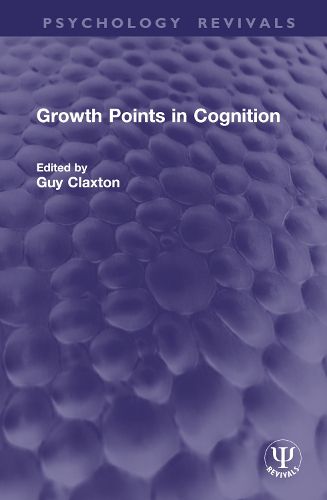Readings Newsletter
Become a Readings Member to make your shopping experience even easier.
Sign in or sign up for free!
You’re not far away from qualifying for FREE standard shipping within Australia
You’ve qualified for FREE standard shipping within Australia
The cart is loading…






'Cognition' is not so much a field as a forest. It presents the newcomer with an immense wealth of detail: theories, models, terms and findings that are entangled and sometimes seemingly impenetrable. There is plenty of new growth - of which some will thrive and some will not. And a lot of dead wood too, some recognised and some not. How is the student to begin to make sense of all this?
Originally published in 1988, Growth Points in Cognition provided a much-needed perspective, presenting those key topics in cognitive psychology that were likely to shape the development of the subject over the next decade. The contributors discuss important areas of cognition such as perception, action, memory, comprehension and problem-solving, and examine the increasingly fruitful interplay between cognition and the allied fields of neuropsychology, cross-cultural psychology, and development. Today it can be read in its historical context.
$9.00 standard shipping within Australia
FREE standard shipping within Australia for orders over $100.00
Express & International shipping calculated at checkout
'Cognition' is not so much a field as a forest. It presents the newcomer with an immense wealth of detail: theories, models, terms and findings that are entangled and sometimes seemingly impenetrable. There is plenty of new growth - of which some will thrive and some will not. And a lot of dead wood too, some recognised and some not. How is the student to begin to make sense of all this?
Originally published in 1988, Growth Points in Cognition provided a much-needed perspective, presenting those key topics in cognitive psychology that were likely to shape the development of the subject over the next decade. The contributors discuss important areas of cognition such as perception, action, memory, comprehension and problem-solving, and examine the increasingly fruitful interplay between cognition and the allied fields of neuropsychology, cross-cultural psychology, and development. Today it can be read in its historical context.